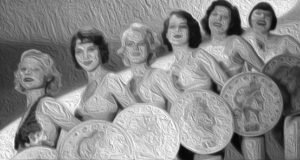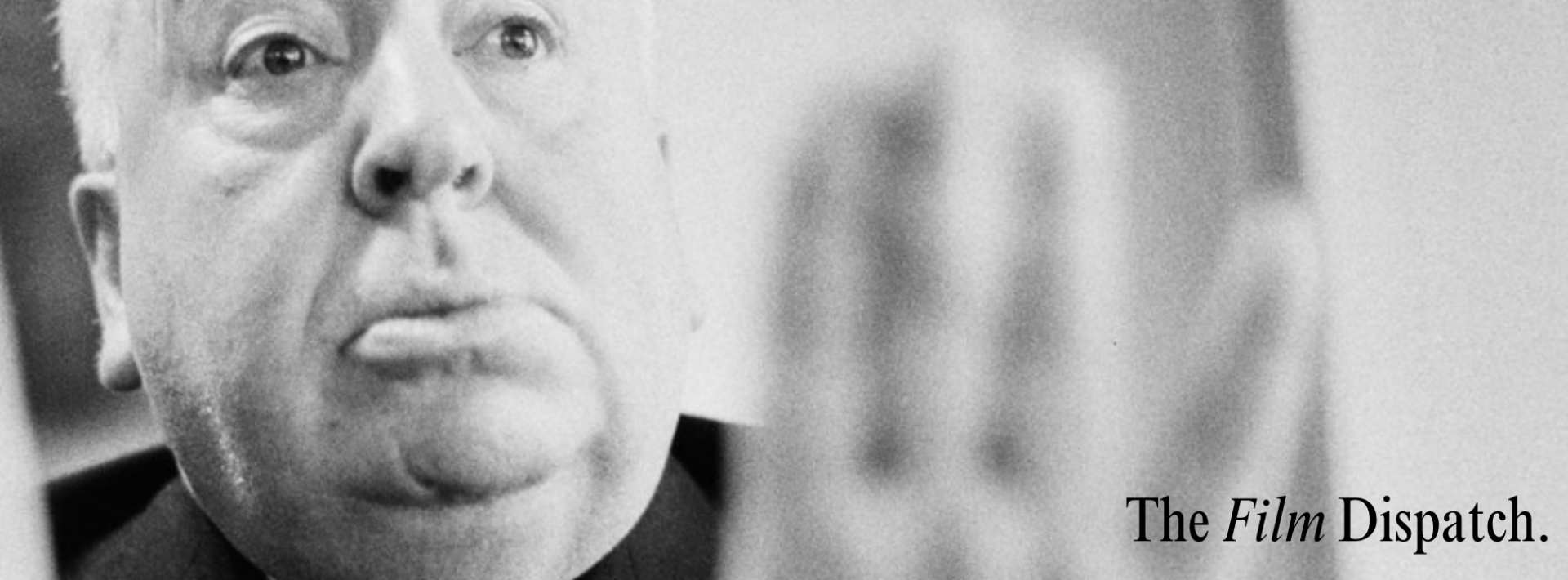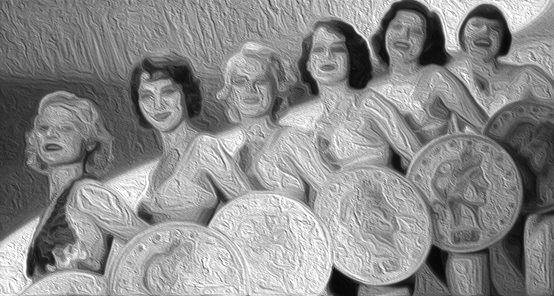
“Just about a year ago I was on my way to Havana; the birds were singing, the sky was blue, and I said to the big mug in the next pew, ‘I need a couple of hundred dollars big boy’, and he said, in my pants pocket.”
So summarises the relations of power, privilege, and patriarchal authority that the stars of Gold Diggers of 1933 (1933, dir. Busby Berkeley and Mervyn LeRoy) must navigate (and undermine) in order to survive. Gold Diggers, one of Warners’ Great Depression musicals, may not seem an obvious choice for ‘Women in Film’, partly directed by master of objectification (in a literal, mechanical, and geometric sense), Busby Berkeley. Steeped as it is in 1930s patriarchal values, Gold Diggers is remarkable for its centering of female friendship and camaraderie. The eponymous Gold Diggers are Carol, Trixie, Polly, and Faye, a group of penniless showgirls played by the indomitable Joan Blondell, wisecracking Aline MacMahon, knock-kneed Ruby Keeler, and a pre-RKO Ginger Rogers respectively.
Unlike the other Berkeley pictures made at Warners during this period – such as 42nd Street and Footlight Parade, which focus on a worn-down Warner Baxter and an overworked James Cagney – Gold Diggers is more interested in the dynamics of female friendship than outlying male characters (although men, as you may imagine, occupy significant positions of power and financial authority in the film). Amidst the austerity of The Great Depression, the girls are thrilled to find work in a new musical revue funded by Dick Powell’s Brad Roberts, a Back Bay socialite and aspiring composer. Scandalised by his involvement in the theatre and his love for Polly, Brad’s old-money relatives come down the east coast to threaten disownment unless he dissolves his career and relationship. Gold Diggers places William Warren, his big roman nose, and a pug-faced Guy Kibbee as the representatives of patriarchal aristocracy and sneering class politics. Carol, Trixie, and Fay play up an exaggerated femininity in order to wring as much as they can out of the two walking cheque books, while ensnaring them in a position from which they must allow Brad and Polly’s love.
Gold Diggers stands out amongst Warners’ Busby-helmed musicals of the early thirties for its presentation of intelligent, formidable women, with an acute awareness of the roles that they as working-class women are expected to play under the patriarchy. Taking Warren and Kibbee’s contemptuous toffs for everything they’ve got, the girls make a mockery of the patriarchal social order, exposing the inherent hypocrisy of the well-to-do. The film’s depiction of redoubtable female characters is arguably hampered by the rampant objectification found in Berkeley’s production numbers, such as the lascivious ‘Pettin’ In the Park’. However, it is worth considering that the musical sequences in this series were filmed on separate sound stages with a different crew, and their relationship to the narrative is slight. While the haunting ‘Remember My Forgotten Man’ is as powerful and lingering as any passage by Dalton Trumbo, it is the film’s female stars that draw our attention. But who gets first billing? William Warren.
Written by Alexander Ferrier for The Film Dispatch.

